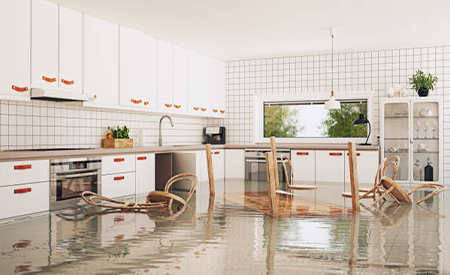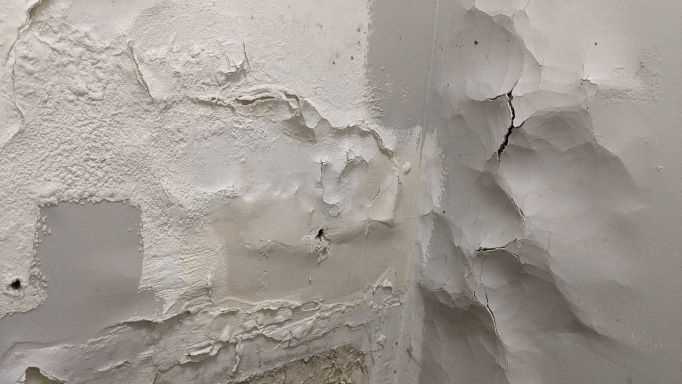Affordable Water Damage Repair Services for Every Homeowner in Need
Affordable Water Damage Repair Services for Every Homeowner in Need
Blog Article
The Process of Water Damages Cleaning: Ensuring Your Home Is Brought Back Effectively
Water damages can be a daunting challenge for home owners, requiring a meticulous and organized cleanup procedure to restore security and functionality. A comprehensive evaluation is essential to identify the degree of the damages and determine the suitable remediation measures. Following this, reliable water extraction strategies play an essential function in alleviating further harm. However, the nuances of drying out, disinfecting, and eventual reconstruction are similarly vital and typically forgotten. Recognizing these stages can make a considerable distinction in the end result of your home's restoration, triggering a closer take a look at what each action requires.
Examining the Damages
Upon finding water damage, the primary step is to extensively analyze the extent of the impact. This first evaluation is crucial, as it aids establish the needed steps for effective cleaning and repair. Begin by checking the impacted areas, including wall surfaces, ceilings, floorings, and personal belongings, to recognize the resource of the water invasion, whether from flooding, leaks, or condensation.
Documenting the damages is important for both insurance coverage claims and preparing repair initiatives - damage restoration services. Usage pictures and composed notes to catch the seriousness of the damage, keeping in mind any kind of afflicted structural elements and materials. Pay special focus to areas that might not be promptly visible, such as behind wall surfaces and under carpetings, as hidden dampness can cause further complications, consisting of mold and mildew development
Furthermore, analyze the timeline of the water direct exposure. The longer the products remain wet, the greater the potential for damages. Understanding the duration of direct exposure will notify the necessity of remediation efforts. Inevitably, a detailed evaluation lays the foundation for an effective water damages cleaning process, making sure that all affected areas are addressed efficiently and thoroughly.
Water Removal Strategies
Professionals usually use completely submersible pumps for bigger quantities of water, which can quickly reduce flooding in basements or various other affected locations. For smaller sized amounts, wet/dry vacuum cleaners are usually utilized to remove residual wetness from carpetings and difficult surfaces. In addition, utilizing portable extractors allows for targeted removal in constrained spaces or locations with delicate materials.
In instances of infected water, such as sewage or floodwater, progressed removal strategies may involve the use of biohazard equipment to guarantee safety and security and conformity with wellness regulations. High-powered removal tools are important in reducing water retention in architectural products, which can cause mold development and architectural deterioration otherwise attended to quickly.
Inevitably, the efficiency of water extraction strategies plays an essential function in the total success of the water damages clean-up process, preparing for succeeding repair efforts.
Drying and Dehumidification
When standing water has been successfully extracted, the next crucial stage in the water damage cleaning process is drying out and dehumidification. This action is vital to avoid further damage and mold and mildew growth, which can happen within 24 to 2 days in damp atmospheres.
To attain efficient drying out, specialized devices such as industrial-grade air moving companies and dehumidifiers is utilized. Air movers flow air across wet surfaces, boosting dissipation rates, while dehumidifiers decrease humidity degrees airborne, promoting a favorable setting for drying out. The combination of these tools makes certain that wetness is extracted from wall surfaces, floors, and furnishings, enabling them to completely dry thoroughly.
It is necessary to keep track of the drying out procedure carefully. Professionals usually use dampness meters to examine the dampness pop over to this site material in numerous materials, making sure that all influenced areas get to acceptable dry skin levels. This careful strategy aids to stop hidden dampness pockets that can lead to architectural damage or unhealthy mold and mildew growth.

Cleaning and Sterilizing
After the drying and dehumidification phase is full, the next important step in water damage cleaning is cleaning up and sterilizing the affected locations. This procedure is critical to stop the growth of mold, microorganisms, and other pathogens that prosper in damp settings.
The cleansing phase typically entails eliminating any kind of particles, dirt, and impurities from surfaces making use of specialized cleaning up representatives. For difficult surfaces, a mix of soap and water or business cleaning items is commonly utilized. Soft products, such as furniture and carpets, might require extra considerable cleansing techniques, including vapor cleaning or deep extraction methods, to make certain detailed cleanliness.

Disinfecting follows cleansing, utilizing EPA-approved anti-bacterials to remove dangerous microorganisms. This action is important, especially in locations that may have entered call with floodwaters or sewage, as these resources can pose significant wellness risks.
In addition, it is essential to deal with any remaining odors, which might call for making use of odor neutralizers or advanced methods like ozone therapy. Correct cleansing and sanitizing not only bring back the safety and security and health of your home however additionally lay the groundwork for successful repair and repairs in subsequent stages of the water damage cleaning process.
Remediation and Fixings

As soon as the analysis is total, repair efforts can begin. In addition, floor covering may require similar attention, depending on the degree of water direct exposure.
It is crucial to involve skilled reconstruction experts throughout this process, as they possess the know-how to deal with intricate repairs successfully. They can assist mitigate potential future problems, such as mold and mildew development or structural instability, thus ensuring a habitable and safe living setting. Ultimately, efficient reconstruction and repairs bring back the home's stability and boost its overall value.
Conclusion
Finally, the process of water damage clean-up is essential for restoring a home to its pre-damage condition. Each phase, from examining the damages to applying reliable water removal strategies, followed by extensive drying out, sterilizing, and needed repairs, plays a vital function in making sure safety and security and conformity with structure requirements. Efficient execution of these steps not only reduces immediate damage yet additionally boosts the lasting stability and value of the see here now residential or commercial property.
Water damage can be a challenging challenge for home owners, demanding a careful and structured cleanup procedure to bring back safety and capability. Eventually, an extensive assessment lays the foundation for a successful water damage cleanup procedure, making sure that all impacted areas are addressed properly and completely.
Reliable water extraction strategies are important in minimizing damage and protecting against additional complications adhering to a water intrusion event.In verdict, the process of water damages cleaning is vital for bring back a home to its pre-damage problem. Each phase, from examining the damages to executing reliable water removal techniques, complied with by complete drying, sterilizing, and essential fixings, plays a necessary role in making sure security and compliance with building requirements.
Report this page